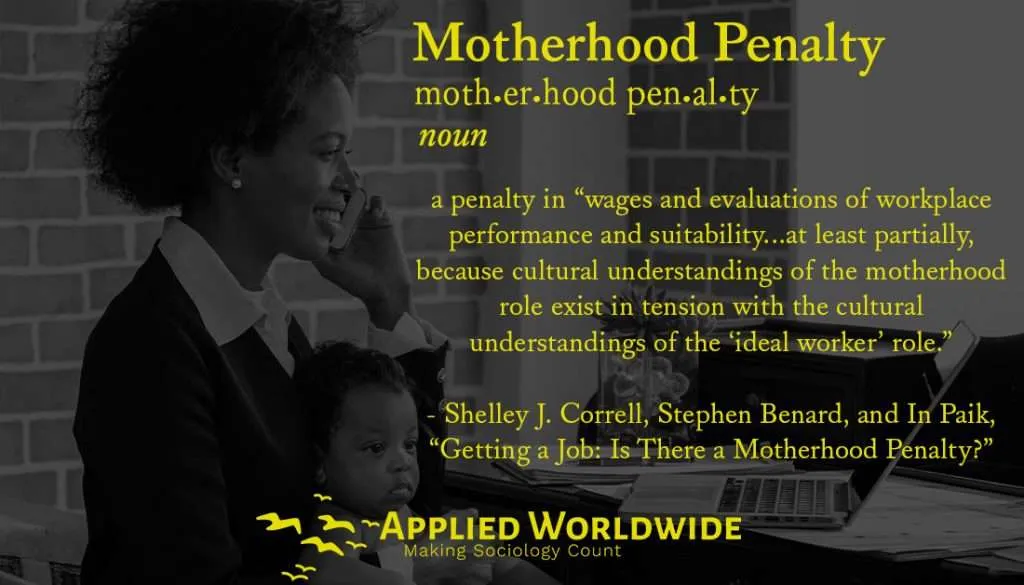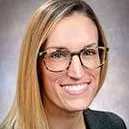Editorial Note:
This profile of Rebecca Joy Tromsness is presented as part of a larger project with the intentions of: 1) providing students with examples of applied sociology, 2) providing market value to sociological skills and services, and 3) promoting the work of individual sociological practitioners and organizations. Browse the full series of profiles here.
Rebecca Joy Tromsness, MA
Rebecca Joy Tromsness began her educational career by earning a BA in both sociology and Spanish and minoring in English. Tromsness then went on to earn her MA in Journalism. She is now an advocate for gender equity in its most basic form: valuing care. She uses her sociological background for understanding inequality and the labor market to help moms re-enter the paid workforce with confidence. To do so, she provides job-seeking parents with tools and coaching—mindset shifts and frameworks—that enable them to see (and believe), first, their value, and second, their transferable skills from unpaid caregiving work. Making the job-search process suck less for full-time caregiver parents with resume gaps is her jam and gives her great joy!
When we asked Tromsness how she established herself as an applied sociologist in the job coaching sphere, she told us:
Through my own lived experience (biography), I was able to connect my career break—void of consistent wages [“personal issue”]—within our global capitalist economy, where household labour and caregiving is devalued, unpaid, and largely invisible even whilst producing the very labour power, or NextGen talent, that the economy can’t function without [“larger social structures”] … and that this pattern has continued silently for decades (history). The pandemic served to expose it. And I plan to keep talking about it. When looking to my own re-entry, instead of snagging a job, I decided to launch a workforce re-entry hub for moms that offers 1-1 coaching and a re-entry program (coming soon!).
Tromsness also added:
Also worth noting that the “global south” / PGM (People of the Global Majority) folks are well-acquainted with this reality on a much deeper level. Mothers’ workforce participation requires childcare—an undervalued, underpaid, female-dominated industry (96% of childcare workers in Canada are women, and 97% in US)—oftentimes provided by underpaid PGM either through precarious under-the-table arrangements or through government programs.
“Child care workers were also more likely than workers in all other occupations to belong to a group designated as a visible minority” (StatsCanada 2016).
It goes without saying that valuing childcare is one path toward a more equitable feminism. Otherwise, it’s just a privileged brand of white-washed feminism that sees a particular class/type of moms’ workforce participation gains, but at the cost of underpaid PGM.
Continue reading below for the full profile of Tromsness’ feminist sociological work and connect with her further on Instagram, LinkedIn, and at JoyBeforeWork.com.

Using Sociology in Practice
To begin, can you briefly describe the work you do as an applied or clinical sociologist?
As an applied sociologist, I equip full-time caregiver moms re-entering the paid workforce to utilize a sociological imagination. I help them understand the broader hiring context within which their job search takes place [caregiver bias, skills gaps, labor shortages, skills-based hiring trends, etc.] and the broader historical context of their unpaid work [devaluing of the care economy, value comes only from labor exchanged for wages within our capitalist economy, yet skills sharpened in unpaid contexts are 100% transferable, etc.] all with the goal to boost confidence and enable them to see value where society does not. I help parents outline a job-search strategy where they’ll be able to ditch self-doubt, shift mindsets that don’t serve them, showcase their skills and experience in career documents and align to a target role, employ networking techniques, and nail a personal brand that they’re excited to embody.
I am an advocate for structural policy changes toward valuing care.
In general, how do you use sociology in practice?
I am convinced that every parent [and person] does the best that they can with the level of:
- Resources ($)
- Time
- Support (people, family, friends, Village)
- Network / connections
- Knowledge
- Education
- Ability
- Health / Mental Health
- Bandwidth
- Privilege
that they have. All of those things, though they seem straightforward, are intricately enmeshed with structural things like poverty, globalization, homelessness, mental health crisis, as well as the “ism” issues: sexism, racism, classism, ageism, etc.
- Working for pay vs. not working for pay
- Re-entering the paid workforce vs. not re-entering the paid workforce
- Owning a traditional career path vs. not owning a traditional career path
are not the sole result of a person’s grit and will and determination but rather a combination of so many factors, many of which are structural. In my practice, I remove the onus, self-doubt, shame, internalized bias off of moms who often believe they need to somehow “fix” themselves to become worthy of call-backs, interviews, a job with fair compensation. Instead, I pull back the curtain to show them how we got here, and how we can shift mindset and step forward with confidence in the job search. I tell them: YOU HAVE VALUE.
How do you use sociological research methods in practice?
Informal focus groups, participant observation (social media), collecting data via polls/surveys, interviews, etc.
How do you use sociological theory in practice?
Sociological theory informs my coaching approach and advocacy, and inspires reflection for my own theory/commentary regarding Western society’s reliance on a “motherhood” narrative and rhetoric in order to hide the labour. Below are a few influential works:
- C. Wright Mills – The Sociological Imagination
- Federici – Patriarchy of the Wage
- Marx – The Communist Manifesto, The Fetishism of Commodities
Lessons for Future Practitioners
What types of courses should undergraduate students take in preparation for a career similar to yours?
- Sociology theory
- Sociology of work/labour
- Feminist theory
- Cultural studies
- Gender studies
- Media studies
- Family studies (culture/anthropology/sociology)
What types of courses should graduate students take in preparation for a career similar to yours?
Career development practitioner certificate.
What types of experiences should undergraduate students seek in preparation for a career similar to yours?
- Resume-writing
- Academic advising (for incoming students)
- Volunteering at high school or university career fairs
- Shadowing recruiters
- Shadowing hiring managers
- Shadowing HR
What types of experiences should graduate students seek in preparation for a career similar to yours?
- Career coaching
- Resume writing
- Life coaching
- Employment services
- Recruitment
- Academic advising (high school or undergraduate)
- Co-op placement
- Internship placement coordinator
What texts or authors can people reference to learn more about the work you do as an applied or clinical sociologist?
- Silvia Federici
- Karl Marx
- Eve Rodsky
More generally, what are the best outlets to learn more about the work you do as an applied or clinical sociologist?
Informational interviews with career coaches specializing in return-to-work / workforce re-entry and career transitions.
How would you describe the daily life of an applied or clinical sociologist?
Joyful and full of meaning. Helping people connect struggle with structure, and join voices of advocacy is extremely rewarding.







